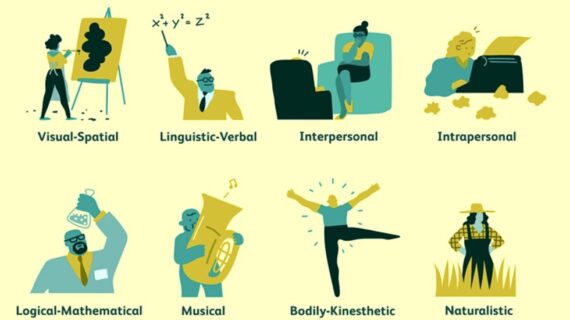Throughout my life, I’ve had the opportunity to learn foreign languages in different ways and in different circumstances . Each experience has been unique, presenting its own set of challenges and techniques. Now, as I reflect on my language learning journey, I want to share my insights with you and uncover the key factors that contribute to effective language acquisition. Together, we’ll explore the lessons I’ve learned along the way, hoping to shed light on your own path towards mastering a new language. Join me as we delve into the intricacies of language learning and discover what it takes to succeed.
German
It was the first foreign language that I began studying at the age of 6, through an experimental group at my kindergarten that aimed to prepare children for school with foreign language classes. Looking back, I feel fortunate to have had such an opportunity, as most kids in my country begin learning foreign languages from grade 5 or 6.
In those early days, the classes were gamified and I found myself learning vocabulary by heart for the first four years. We didn’t have any talented professional teachers, so my language learning was mostly focused on remembering and retelling “topics” to my teacher. I must say, I was quite good at it! But was memorization the best approach? I’ll come back to that.
I continued my language studies in university, where I applied to become a translator of foreign languages. The memorization struggle continued, but this time we had to learn around 200 words per week. Although we were taught different aspects of the language, I wasn’t very successful in overcoming my speaking barrier. I could express my thoughts in German only in writing, but was terribly afraid to make mistakes when speaking, so I would often fall silent. I could memorize large amounts of information in German and reproduce it, and I even mastered pronunciation as well as written translation (which I enjoyed the most), but I struggled to make sentences on the spot and be spontaneous in my communication.
Looking back, I realize that I didn’t have a clear vision of what I wanted to do with the language.  I didn’t plan to go to Germany, and becoming a translator (which isn’t a very common job, to be honest) didn’t seem like a realistic career path for me. I thought about trying to translate books, but I quickly grew bored and found the job to be too demanding for me.
I didn’t plan to go to Germany, and becoming a translator (which isn’t a very common job, to be honest) didn’t seem like a realistic career path for me. I thought about trying to translate books, but I quickly grew bored and found the job to be too demanding for me.
Now, many years after graduation, I can’t remember a single day when I’ve spoken German. Although I have a deep knowledge of the language after learning it academically for i guess around 16 years, it’s all in passive memory today and I can’t speak it anymore. I realize that memorization was not an effective technique for language learning, and that having a clear vision and more opportunities to practice speaking would have been crucial for me to retain my ability to use the language in my daily life.
English
I started learning English during my second year of university when I embarked on my second foreign language adventure. However, this time, I was met with disappointment as our English teachers proved to be unhelpful and ineffective. The language barrier that plagued me during my German studies persisted, leaving me mostly silent throughout my university years. But little did I know that a turning point was just around the corner.
During that time, I started teaching English, mainly to children. Teaching became a powerful tool for my own language learning. With each new student or group, I had the chance to revisit the basics and explore the language even further, and although anxiety often accompanied my preparations for teaching, it only fueled my determination to work harder and learn more.
As my journey continued, I found myself making English-speaking friends. Despite making mistakes, my eagerness to connect with people, learn about their cultures and lifestyles, and immerse myself in conversation drove me forward. I had a vision of myself speaking English, and that motivation propelled me to persist.
Though some laughed at my mistakes, I remained unfazed. I had spent far too long in silence and was never going back. Speaking English became an exciting adventure, with each conversation marking my rapid growth. I became unafraid to ask questions and actively sought correction from others.
Adopting a shameless mindset, I recognized that mistakes did not make me foolish; rather, they became valuable learning opportunities and that defined my path to success.
Eventually, life led me to Turkey, where English became my primary language. Surrounded by English-speaking individuals who were eager to practice, my connections with people took on an emotional dimension. English started opening doors for me professionally as well. I began offering online English lessons, initially motivated by financial incentives. I secured positions at an international office of a university, assisting foreign students who arrived in Turkey, and as a teacher at a language course later. English had transformed from a language I learned to a career I embraced.
 Over time, a new vision emerged—a coaching career. I became passionate about how English language could help individuals achieve their dreams, catering to the unique needs of my students across various aspects of the language.
Over time, a new vision emerged—a coaching career. I became passionate about how English language could help individuals achieve their dreams, catering to the unique needs of my students across various aspects of the language.
English also played a vital role in my personal growth journey. I turned to guided meditations in English, sought knowledge in coaching and psychology through English resources, and even started journaling and thinking in English. The learning process never ceased, as I continuously discover new words, improve my pronunciation, and expand my understanding of the language even today.
Looking back, I can confidently say that English has always been my pathway to success, a constant companion in the face of life’s challenges.
I’ve come to realize that this immersive and dynamic approach is the best way to learn a language.
Turkish
For the past 13 years, I’ve been living in this country, but English has always been my main language. Turkish, on the other hand, didn’t hold much motivation for me. In Istanbul, I knew I could find English-speaking jobs and friends, so I didn’t feel the need to learn Turkish extensively. Well, at least not until after two years of learning.
In the beginning, I dedicated time every day to learn, visiting websites, translating songs, and seeking help from friends to form sentences and understand unfamiliar words. I acquired useful phrases, but often found myself at a loss in certain situations. Perhaps it was due to the overwhelming kindness of Turks towards foreigners. Once people realized I struggled with Turkish, they would eagerly offer help, inadvertently dampening my motivation. But let me be clear, I don’t blame anyone for that! :))

I reached a comfortable level in Turkish, something like good elementary or low-intermediate, and I stagnated there for years.
However, my perspective changed when I started connecting with people who didn’t speak English, making friends and even becoming part of a Turkish family in the last three years. The desire to forge deeper connections and understanding prompted me to speak up, express my thoughts, and ask more questions. Those who knew me three years ago have remarked on my growth in Turkish proficiency.
This learning experience has been vastly different. I’ve immersed myself in the language environment, facing various situations and events that pushed me to be creative and communicate effectively.
Although I don’t write or read extensively in Turkish, I can watch movies and hold conversations. Unlike my previous academic language learning approach, this time it has all been a natural progression. Yes, I make plenty of mistakes in Turkish, and I’m perfectly fine with that! While I don’t think in Turkish, I occasionally find Turkish phrases to be the best way to express my thoughts. I continuously rely on online dictionaries to understand the world around me and the people I interact with.
Turkish holds a deep emotional connection for me, but I lack a clear vision for furthering my knowledge, and as a result, my motivation wanes.
To conclude, from these experiences of learning foreign languages, I can identify the following factors that influence success:
Vision – I’d say it’s number one. If you don’t understand why you are learning this language, what goals you have for it, and what you are going to do with it, your brain will constantly signal “failure,” and your attention and focus will decrease. Since the brain is constantly occupied, it will simply push out everything you learn to free up space for things that actually matter to you.
Motivation – This one comes from the first factor, vision. If you feel the need to learn the language, you will naturally be more motivated to take the next step. Learning a language is a long journey, and you can’t do it with a negative attitude, overexerting yourself, blaming yourself, and feeling dissatisfied. To strengthen your motivation, use positive reinforcement, feel thankful for making the step to learn, allow yourself to make mistakes and ask questions, and empower yourself like you are your best friend.
Emotion – Our brain automatically activates when we feel. Include emotions in your learning. Simply learning vocabulary can be very boring, and you will easily forget what you learned. But if you make realistic examples of how to use vocabulary and place it in your inner eye in realistic situations, you will feel it, and your brain will happily memorize it.
Feel free to share your learning experience in the comments! I would love to know about your language learning journey!
 I didn’t plan to go to Germany, and becoming a translator (which isn’t a very common job, to be honest) didn’t seem like a realistic career path for me. I thought about trying to translate books, but I quickly grew bored and found the job to be too demanding for me.
I didn’t plan to go to Germany, and becoming a translator (which isn’t a very common job, to be honest) didn’t seem like a realistic career path for me. I thought about trying to translate books, but I quickly grew bored and found the job to be too demanding for me. Over time, a new vision emerged—a coaching career. I became passionate about how English language could help individuals achieve their dreams, catering to the unique needs of my students across various aspects of the language.
Over time, a new vision emerged—a coaching career. I became passionate about how English language could help individuals achieve their dreams, catering to the unique needs of my students across various aspects of the language.








